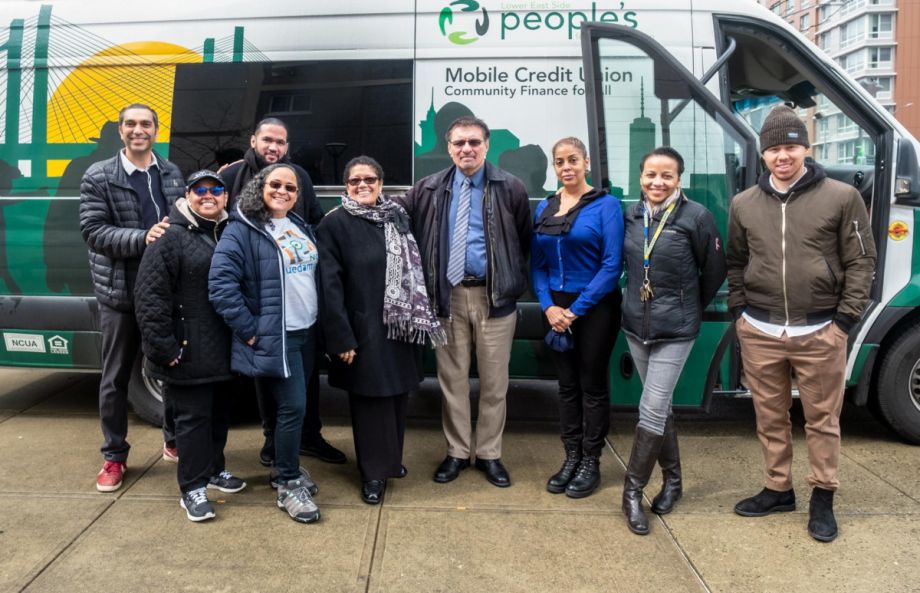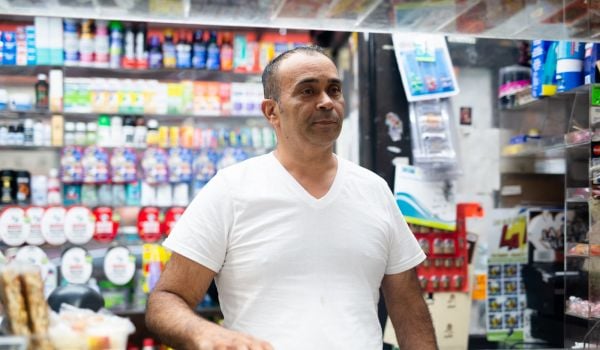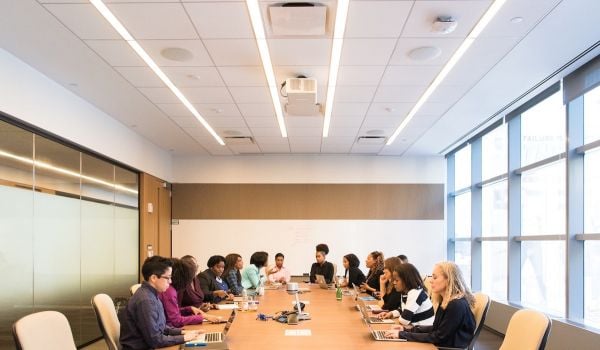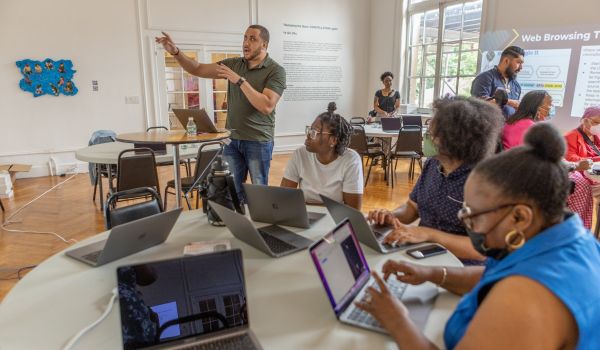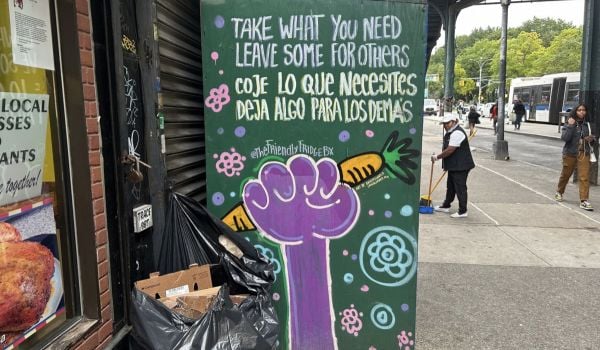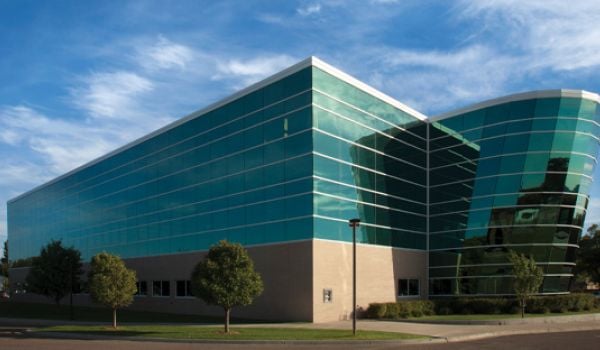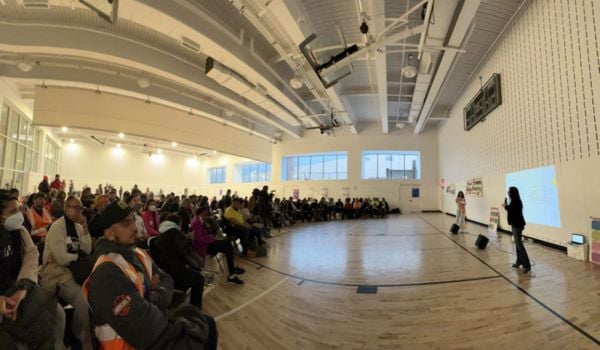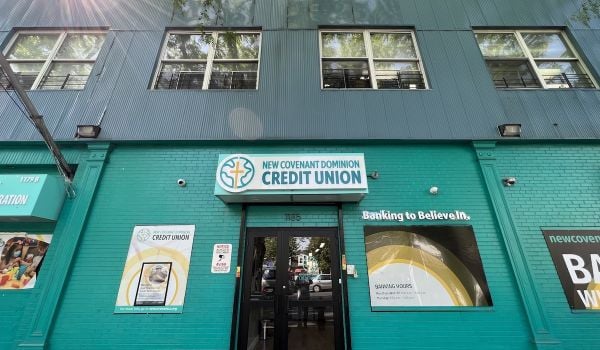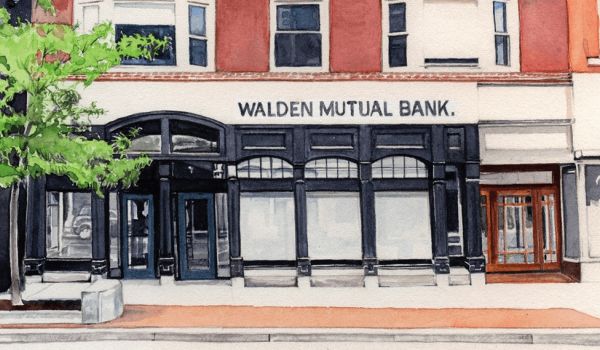At the height of the pandemic, bank after bank began shuttering across the Bronx — between 2019 and 2021, seven banks closed 17 branches, with more than half happening in 2020, according to The Association for Neighborhood & Housing Development. The closures exacerbated an existing problem: prior to COVID-19, the Bronx had the fewest bank branches and the most check cashers and pawnshops per household in the state, possibly the country.
Community organizers in the Bronx had spoken out about the closures since 2019. But they weren’t making headway with the banks, who claimed they lost money on those branches, or banking regulators, as both state and federal agencies claimed they lacked enforcement power to stop the closures.
So those same organizers found a solution to address the problem themselves: a mobile banking branch, free to travel the 42-square-mile borough. This is one result of a partnership with a longstanding New York City credit union to provide services designed for this underbanked community.
“We’re on the ground, we’re definitely using the wheels on the van,” says Jumelia Abrahamson, a director at the University Neighborhood Housing Program (UNHP), one of four organizations that make up the Bronx Financial Access Coalition. “That’s really part of the intent — it means reaching people where they are, with no- to low-tech technology, and speaking in their terms.”
The coalition comprises three other local affordable housing and community service providers: Banana Kelly Community Improvement Association, WHEDco, and We Stay / Nos Quedamos.
These organizations have deep roots in the neighborhood. Banana Kelly’s origins date back to 1978 when residents took action against the city, which intended to demolish buildings on Kelly Street in the South Bronx, by “liberating” three buildings and rehabilitating them through sweat equity. UNHP, started in the 1980s, also emerged from a goal of locally-controlled housing.
The organizations previously worked in partnership, both in affordable housing and early mobilization against the bank closures. Between 2020 and 2021, they joined a citywide coalition pushing for responsible banking in historically redlined communities like the Bronx.
“The coalition is building upon existing relationships to collaborate, where there’s already some trust,” says Gregory Jost, the policy and campaigns advisor at Banana Kelly Community Improvement Association.
This work planted the seeds for a breakthrough moment after the closure of a Sterling Bank branch in 2020. The organizers met with bank representatives that fall into early 2021, coming to a compromise in which the bank would financially sponsor an effort to bring an established community credit union to the Bronx. Funding came through in early 2022 and the Bronx Financial Access Coalition was born.
The challenge was steep from the get-go: How could the coalition reach as many people as possible across the massive borough, knowing that many of them didn’t trust financial services or faced hurdles — like the lack of a social security number — to open an account?
Luckily these questions have long been on the mind of the Lower East Side People’s Federal Credit Union, organized by local activists in 1986 to fill the void left by the closing of the last bank branch in the Manhattan neighborhood. Today, nearly 80% of its members are low income.
The credit union’s use of a mobile branch dates back to Hurricane Sandy, when its Lower Manhattan branch was shuttered for one week. The bank partnered with a former Bronx credit union to purchase a school bus and utilize it as a mobile branch. A few years ago, the credit union invested in a new compact van specifically designed for banking and outreach.
The credit union partnered with the coalition to expand into the borough. Last spring, it started sending the mobile branch into the Bronx to begin outreach and find steady, convenient spots for members to access them. By July, the Bronx Financial Access Coalition formally launched with a regular travel schedule, active outreach, and the ultimate goal to open a brick-and-mortar location most convenient to Bronx members.
With decades of community organizing behind them, the coalition created a clear strategy to move forward. The first task was ensuring the mobile branch’s services were as accessible as possible.
“We’re thinking about how to assist low-tech residents who may not be able to navigate a computer, needs of Spanish speakers, what forms of documentation people have to meet the membership requirement,” says Abrahamson. “It’s about making the process as simple as possible … for residents who come in and might not even know what a credit union is.”
At the van residents can open a free checking account, access loans, or receive support to secure your Individual Taxpayer Identification Number (ITIN), provided to people who aren’t eligible for a social security number and face hurdles to open an account at a traditional bank.
The coalition also partners heavily with local organizations across the Bronx and has actively recruited them to become “select partner groups” of the credit union, which allows membership benefits to its staff, members, clients and affiliates.
“The way to make this work is to integrate the coalition with the work that groups are already doing,” explains Jost. “We want to make sure organizations are able to connect [the credit union] to their core missions.”
Part of the Solution (POTS) has long offered services to Bronx residents including a food pantry, public benefits resources, showers, haircuts and medical care. Last year the organization hosted the mobile unit outside its headquarters twice, with POTS staff and Bronx Financial Access Coalition members tabling outside. “The first day we had around 15 people open bank accounts,” according to Josef Aguilar, associate director for long-term stability services at POTS.
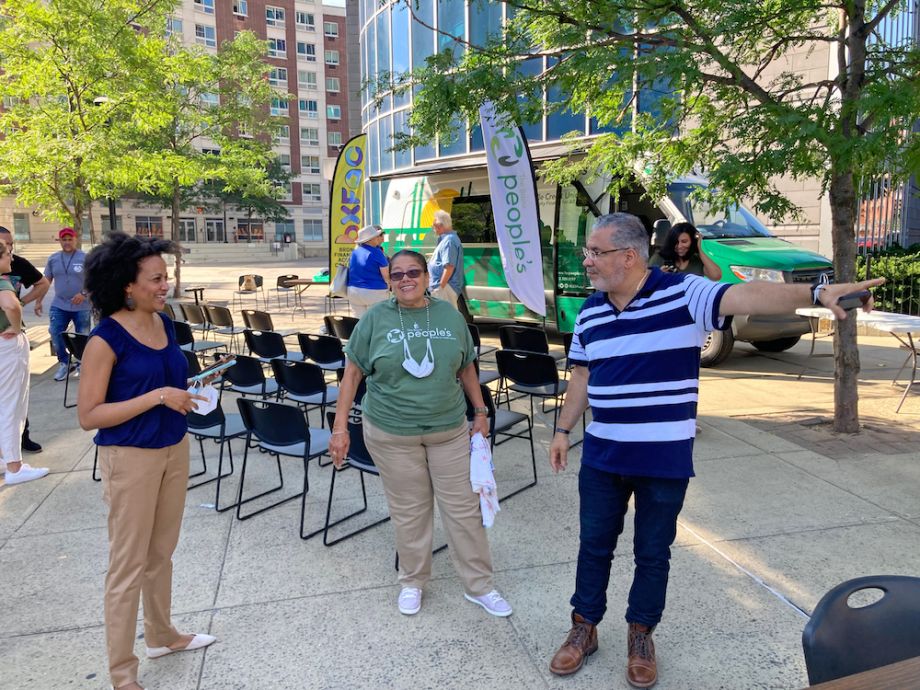
(Photo courtesy of the Bronx Financial Access Coalition)
“They trust POTS, so if the mobile branch is coming to a place where someone trusts, it’s more likely they’ll sign up [for an account],” Aguilar says. When the weather warms up, POTS hopes to host the mobile branch regularly this year.
Since July, the coalition has tested outreach strategies at various locations and events. Back-to-school events and food giveaways didn’t translate to immediate sign-ups. “But we’ll use those events to get information out, and sometimes people come back and want to start an account,” says Jost. “It takes time, you often need to have multiple conversations, and it helps to have these partnership organizations who are already talking to people about these kinds of things.”
One successful outreach initiative, a bank branch closure tour, kicked off in October on International Credit Union Day. Over three events, the coalition toured closed bank branches and parked the mobile branch nearby to engage residents.
During colder months the organizations in the coalition, all of which focus on housing, want to bring outreach to the residents they work with. “We just ordered different outreach materials to hang on people’s doorknobs,” Jost says.
He doesn’t feel like it’s a big leap between housing organizing and financial equity: “The reasons our organizations exist, as community reinvestment vehicles, is because of the entanglement of the housing and banking systems.”
The focus in 2023 will be to collect data to narrow down potential locations for a brick-and-mortar branch. The coalition knows that “one branch won’t tip the scale,” as Abrahamson puts it. “So it’s important to think of what else we can do in a robust, comprehensive way to build a network.” The coalition sees its partnerships with local organizations as a long-term engagement and public awareness strategy, and will actively advance campaign strategies like support for the New York Public Banking Act.
“The concept of public banking can feel a little abstract to people,” Jost says. “While the credit union is an option that people can join right now, you can become a member, have your child sign up. That’s how real and tangible this is.”
This article is part of The Bottom Line, a series exploring scalable solutions for problems related to affordability, inclusive economic growth and access to capital. Click here to subscribe to our Bottom Line newsletter.

Emily Nonko is a social justice and solutions-oriented reporter based in Brooklyn, New York. She covers a range of topics for Next City, including arts and culture, housing, movement building and transit.
Follow Emily .(JavaScript must be enabled to view this email address)



